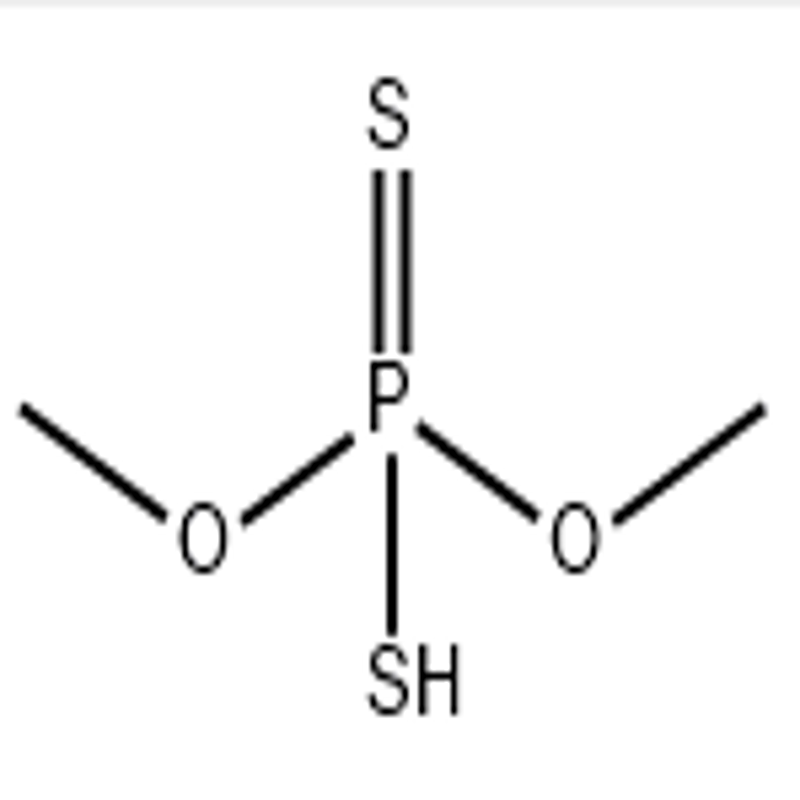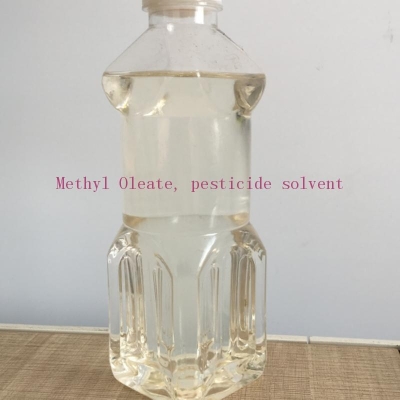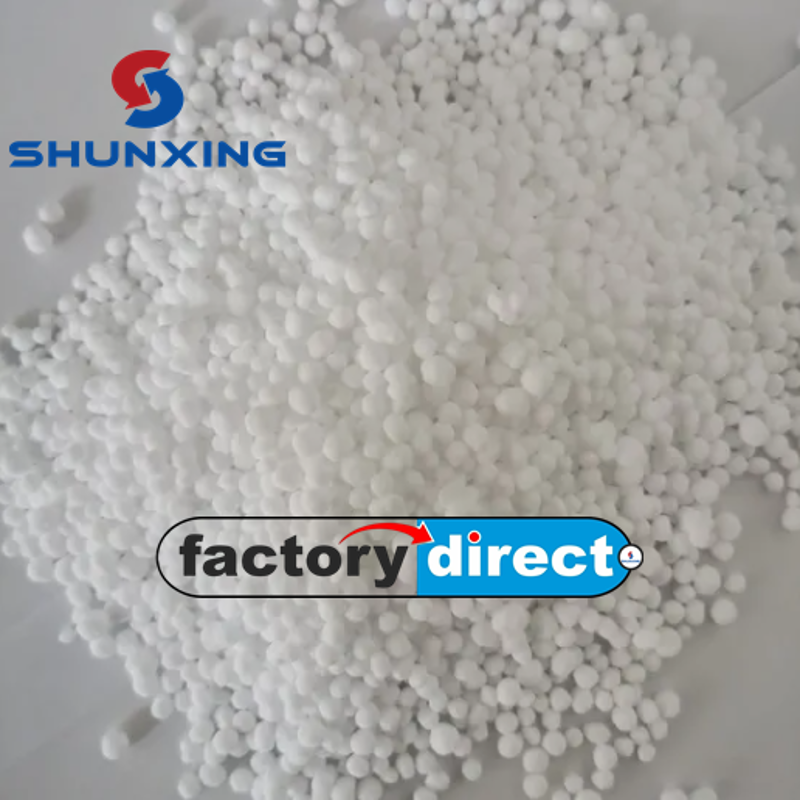-
Categories
-
Pharmaceutical Intermediates
-
Active Pharmaceutical Ingredients
-
Food Additives
- Industrial Coatings
- Agrochemicals
- Dyes and Pigments
- Surfactant
- Flavors and Fragrances
- Chemical Reagents
- Catalyst and Auxiliary
- Natural Products
- Inorganic Chemistry
-
Organic Chemistry
-
Biochemical Engineering
- Analytical Chemistry
-
Cosmetic Ingredient
- Water Treatment Chemical
-
Pharmaceutical Intermediates
Promotion
ECHEMI Mall
Wholesale
Weekly Price
Exhibition
News
-
Trade Service
Paraquat is about to be delisted.
As an excellent alternative product, glufosinate-ammonium has formed a wave of upsurge at home and abroad in recent years
.
In the global frenzy of blindly expanding production capacity, the price of glufosinate-ammonium technical fell from a high price of 350,000 yuan/ton to the current price of around 135,000 yuan/ton, which has been unprofitable and has caused the industry to surprise the industry
.
? Blind expansion of production will hurt the industry? Disconnected production and demand will lead to market fluctuations, short supply will lead to price increases, and oversupply will cause prices to fall.
This is the cruel reality of the market law
.
It is understood that the battle for glufosinate production capacity expansion started in 2015, which has laid hidden dangers for irrational market competition and price wars
.
? In foreign countries, Bayer CropScience is further expanding the production capacity of glufosinate-ammonium and its intermediates in the United States, and the German Specialty Chemical Company invested US$200 million to build a plant in Mobile County, Alabama, USA.
Production of glufosinate-ammonium intermediates
.
In addition, Bayer invested US$50 million to expand its plant in Muskegon, Michigan, to increase the production capacity of glufosinate-ammonium.
The project is currently in the implementation phase
.
The two projects took two years to complete and are expected to be put into production in mid-2017.
By then, the total production capacity of Bayer's glufosinate-ammonium technical drug will exceed 12,000 tons
.
? The expansion of domestic enterprises is not showing weakness
.
At present, Zhejiang Yongnong Chemical Co.
, Ltd.
already has a production capacity of about 3,000 tons of glufosinate ammonium per year; Lier Chemical Co.
, Ltd.
's total production capacity of glufosinate ammonium has reached 3,600 tons, with a total designed production capacity of 17,600 tons per year of glufosinate ammonium.
The phosphine technical project has entered the future plan; Sichuan Fuhua Tongda Pesticide Technology Co.
, Ltd.
has completed the filing of the 12,000 tons/year glufosinate ammonium project invested and constructed in two phases; Inner Mongolia Jiaruimi Fine Chemical Co.
, Ltd.
3000 tons/year grass The ammonium phosphine project is being implemented quickly.
The first production line with an annual output of 600 tons has been trial-produced, and the remaining four production lines are expected to be completed in the next two years; Hebei Weiyuan Biochemical Co.
, Ltd.
has also started on the basis of the original production line with an annual output of 450 tons After the construction of a technical project with an annual output of 1,000 tons of glufosinate-ammonium, the company’s project with an annual output of 3,000 tons of glufosinate-ammonium has also been planned.
.
? Hebei Weiyuan Biochemical Pesticide Co.
, Ltd.
Promotion Director Zhao Jianqin said that if the production capacity of glufosinate is not controlled, it will not be long before glufosinate will become a difficult brother of glyphosate
.
At present, the disorderly competition of glufosinate has intensified, and many small companies have been forced to suspend production
.
? Security issues, the industry is very confused? Senior pesticide research expert, former Shanghai Pesticide Research Institute professor-level senior engineer Zhang Yibin pointed out that with the intensification of glyphosate resistance problems, paraquat is banned due to irreversible toxicity issues.
Phosphine is bound to become an effective substitute for these herbicide products that once occupied an important position
.
However, in the short term, whether in terms of production cost or production safety, glufosinate is difficult to compete with glyphosate and paraquat
.
? Zhang Yibin believes that the development of glufosinate is facing a crucial problem, that is, how to innovate and develop
.
In the future, the development of glufosinate-ammonium should focus on the transformation of the production process, use biological methods to synthesize glufosinate-ammonium to achieve safe and clean production; develop optical resolutions, improve product control effects, reduce the amount of use per unit area, and achieve reduction and harm control , Thereby reducing the cost of use
.
In addition, the long-term use of any pesticide will inevitably lead to resistance problems.
Therefore, in the use of glufosinate-ammonium, we should also pay close attention to the problem of weed resistance and carry out ground-to-air agrochemical services.
Guide scientific medication
.
? Pesticide product development expert, Dr.
Guo Jingquan of the Plant Protection (Asia Pacific) Association, said that paraquat is banned and glyphosate has been twisted, all of which are related to the safety of the product
.
High efficiency and low risk have become a new trend in global pesticide development
.
? Guo Jingquan pointed out that glufosinate-ammonium and its metabolites have moderate to high soil mobility, and there is a risk of sandy soil leaching and groundwater pollution
.
Foreign animal experiments have proved that glufosinate has neurotoxicity and reproductive toxicity, affecting the early development of embryos and causing deformities
.
For this reason, the EU’s approval of the registration of glufosinate-ammonium in 2013 requires registration companies to ensure that users’ exposure to glufosinate-ammonium reaches a negligible level.
.
At present, the product has been included in the European Union's "Alternative Product List".
When the registration expires in 2018, the European Union will re-examine the registration of the product
.
The use of glufosinate has large or small safety risks, which is a problem that society cannot ignore
.
Increasing the research and development of high-efficiency and low-risk products is the kingly way of enterprise development and industry progress
.
? De-capacity, enterprises are helpless? Sun Shubao, chairman of the China Pesticide Industry Association, pointed out that to promote the healthy and sustainable development of the glufosinate industry, de-capacity, technological innovation, and realization of safe production are the industry's must-do homework
.
? At present, the overcapacity of some pesticide products has become one of the most important risk points for the transformation and upgrading of China's pesticide industry
.
On the one hand, the economic benefits of overcapacity industries continue to deteriorate, and potential financial risks continue to accumulate; on the other hand, overcapacity industries occupy a large number of high-quality resources, squeezing the growth space of other enterprises that are conducive to economic transformation, and inhibiting the increase in productivity of the entire industry
.
In addition to the institutional problems that people often talk about, the reason for the overcapacity is that the poor transformation and upgrading makes it difficult for companies to extend from the low-end to the high-end, so they can only engage in vicious competition in the low-end
.
In turn, vicious competition has weakened the ability of enterprises to transform and upgrade, further exacerbating overcapacity
.
Therefore, for China's pesticide industry at this stage, in order to tackle the problem of overcapacity, it is necessary to adhere to the innovation-driven strategy, and to achieve the extension from the low-end link to the high-end link of the industrial chain by improving the technological capabilities of enterprises
.
Chen Chengxin, chairman of Zhejiang Les Chemicals Co.
, Ltd.
, stated that companies must use technological innovation, business model innovation and other means to subvert and innovate traditional production and business models, actively participate in the new round of global technological revolution, and achieve quality improvement and cost advantages.
Double promotion
.
In recent years, Les Chemicals has worked closely with industry, university and research institutes, and with the assistance of returned scientists, has worked hard on production routes, product quality, and product yields, and has successfully developed a new process for the production of glufosinate-ammonium
.
The process does not require the use of sodium cyanide and acrolein.
The small and pilot tests show that it can achieve safety, environmental protection, recycling, and clean production.
.
As an excellent alternative product, glufosinate-ammonium has formed a wave of upsurge at home and abroad in recent years
.
In the global frenzy of blindly expanding production capacity, the price of glufosinate-ammonium technical fell from a high price of 350,000 yuan/ton to the current price of around 135,000 yuan/ton, which has been unprofitable and has caused the industry to surprise the industry
.
? Blind expansion of production will hurt the industry? Disconnected production and demand will lead to market fluctuations, short supply will lead to price increases, and oversupply will cause prices to fall.
This is the cruel reality of the market law
.
It is understood that the battle for glufosinate production capacity expansion started in 2015, which has laid hidden dangers for irrational market competition and price wars
.
? In foreign countries, Bayer CropScience is further expanding the production capacity of glufosinate-ammonium and its intermediates in the United States, and the German Specialty Chemical Company invested US$200 million to build a plant in Mobile County, Alabama, USA.
Production of glufosinate-ammonium intermediates
.
In addition, Bayer invested US$50 million to expand its plant in Muskegon, Michigan, to increase the production capacity of glufosinate-ammonium.
The project is currently in the implementation phase
.
The two projects took two years to complete and are expected to be put into production in mid-2017.
By then, the total production capacity of Bayer's glufosinate-ammonium technical drug will exceed 12,000 tons
.
? The expansion of domestic enterprises is not showing weakness
.
At present, Zhejiang Yongnong Chemical Co.
, Ltd.
already has a production capacity of about 3,000 tons of glufosinate ammonium per year; Lier Chemical Co.
, Ltd.
's total production capacity of glufosinate ammonium has reached 3,600 tons, with a total designed production capacity of 17,600 tons per year of glufosinate ammonium.
The phosphine technical project has entered the future plan; Sichuan Fuhua Tongda Pesticide Technology Co.
, Ltd.
has completed the filing of the 12,000 tons/year glufosinate ammonium project invested and constructed in two phases; Inner Mongolia Jiaruimi Fine Chemical Co.
, Ltd.
3000 tons/year grass The ammonium phosphine project is being implemented quickly.
The first production line with an annual output of 600 tons has been trial-produced, and the remaining four production lines are expected to be completed in the next two years; Hebei Weiyuan Biochemical Co.
, Ltd.
has also started on the basis of the original production line with an annual output of 450 tons After the construction of a technical project with an annual output of 1,000 tons of glufosinate-ammonium, the company’s project with an annual output of 3,000 tons of glufosinate-ammonium has also been planned.
.
? Hebei Weiyuan Biochemical Pesticide Co.
, Ltd.
Promotion Director Zhao Jianqin said that if the production capacity of glufosinate is not controlled, it will not be long before glufosinate will become a difficult brother of glyphosate
.
At present, the disorderly competition of glufosinate has intensified, and many small companies have been forced to suspend production
.
? Security issues, the industry is very confused? Senior pesticide research expert, former Shanghai Pesticide Research Institute professor-level senior engineer Zhang Yibin pointed out that with the intensification of glyphosate resistance problems, paraquat is banned due to irreversible toxicity issues.
Phosphine is bound to become an effective substitute for these herbicide products that once occupied an important position
.
However, in the short term, whether in terms of production cost or production safety, glufosinate is difficult to compete with glyphosate and paraquat
.
? Zhang Yibin believes that the development of glufosinate is facing a crucial problem, that is, how to innovate and develop
.
In the future, the development of glufosinate-ammonium should focus on the transformation of the production process, use biological methods to synthesize glufosinate-ammonium to achieve safe and clean production; develop optical resolutions, improve product control effects, reduce the amount of use per unit area, and achieve reduction and harm control , Thereby reducing the cost of use
.
In addition, the long-term use of any pesticide will inevitably lead to resistance problems.
Therefore, in the use of glufosinate-ammonium, we should also pay close attention to the problem of weed resistance and carry out ground-to-air agrochemical services.
Guide scientific medication
.
? Pesticide product development expert, Dr.
Guo Jingquan of the Plant Protection (Asia Pacific) Association, said that paraquat is banned and glyphosate has been twisted, all of which are related to the safety of the product
.
High efficiency and low risk have become a new trend in global pesticide development
.
? Guo Jingquan pointed out that glufosinate-ammonium and its metabolites have moderate to high soil mobility, and there is a risk of sandy soil leaching and groundwater pollution
.
Foreign animal experiments have proved that glufosinate has neurotoxicity and reproductive toxicity, affecting the early development of embryos and causing deformities
.
For this reason, the EU’s approval of the registration of glufosinate-ammonium in 2013 requires registration companies to ensure that users’ exposure to glufosinate-ammonium reaches a negligible level.
.
At present, the product has been included in the European Union's "Alternative Product List".
When the registration expires in 2018, the European Union will re-examine the registration of the product
.
The use of glufosinate has large or small safety risks, which is a problem that society cannot ignore
.
Increasing the research and development of high-efficiency and low-risk products is the kingly way of enterprise development and industry progress
.
? De-capacity, enterprises are helpless? Sun Shubao, chairman of the China Pesticide Industry Association, pointed out that to promote the healthy and sustainable development of the glufosinate industry, de-capacity, technological innovation, and realization of safe production are the industry's must-do homework
.
? At present, the overcapacity of some pesticide products has become one of the most important risk points for the transformation and upgrading of China's pesticide industry
.
On the one hand, the economic benefits of overcapacity industries continue to deteriorate, and potential financial risks continue to accumulate; on the other hand, overcapacity industries occupy a large number of high-quality resources, squeezing the growth space of other enterprises that are conducive to economic transformation, and inhibiting the increase in productivity of the entire industry
.
In addition to the institutional problems that people often talk about, the reason for the overcapacity is that the poor transformation and upgrading makes it difficult for companies to extend from the low-end to the high-end, so they can only engage in vicious competition in the low-end
.
In turn, vicious competition has weakened the ability of enterprises to transform and upgrade, further exacerbating overcapacity
.
Therefore, for China's pesticide industry at this stage, in order to tackle the problem of overcapacity, it is necessary to adhere to the innovation-driven strategy, and to achieve the extension from the low-end link to the high-end link of the industrial chain by improving the technological capabilities of enterprises
.
Chen Chengxin, chairman of Zhejiang Les Chemicals Co.
, Ltd.
, stated that companies must use technological innovation, business model innovation and other means to subvert and innovate traditional production and business models, actively participate in the new round of global technological revolution, and achieve quality improvement and cost advantages.
Double promotion
.
In recent years, Les Chemicals has worked closely with industry, university and research institutes, and with the assistance of returned scientists, has worked hard on production routes, product quality, and product yields, and has successfully developed a new process for the production of glufosinate-ammonium
.
The process does not require the use of sodium cyanide and acrolein.
The small and pilot tests show that it can achieve safety, environmental protection, recycling, and clean production.
.







